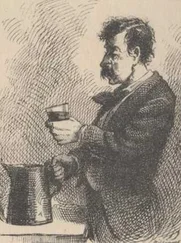Marcus Cicero - Treatises on Friendship and Old Age
Здесь есть возможность читать онлайн «Marcus Cicero - Treatises on Friendship and Old Age» — ознакомительный отрывок электронной книги совершенно бесплатно, а после прочтения отрывка купить полную версию. В некоторых случаях можно слушать аудио, скачать через торрент в формате fb2 и присутствует краткое содержание. Жанр: foreign_antique, Философия, foreign_edu, на английском языке. Описание произведения, (предисловие) а так же отзывы посетителей доступны на портале библиотеки ЛибКат.
- Название:Treatises on Friendship and Old Age
- Автор:
- Жанр:
- Год:неизвестен
- ISBN:нет данных
- Рейтинг книги:5 / 5. Голосов: 1
-
Избранное:Добавить в избранное
- Отзывы:
-
Ваша оценка:
- 100
- 1
- 2
- 3
- 4
- 5
Treatises on Friendship and Old Age: краткое содержание, описание и аннотация
Предлагаем к чтению аннотацию, описание, краткое содержание или предисловие (зависит от того, что написал сам автор книги «Treatises on Friendship and Old Age»). Если вы не нашли необходимую информацию о книге — напишите в комментариях, мы постараемся отыскать её.
Treatises on Friendship and Old Age — читать онлайн ознакомительный отрывок
Ниже представлен текст книги, разбитый по страницам. Система сохранения места последней прочитанной страницы, позволяет с удобством читать онлайн бесплатно книгу «Treatises on Friendship and Old Age», без необходимости каждый раз заново искать на чём Вы остановились. Поставьте закладку, и сможете в любой момент перейти на страницу, на которой закончили чтение.
Интервал:
Закладка:
9. Now, if the attraction of probity is so great that we can love it not only in those whom we have never seen, but, what is more, actually in an enemy, we need not be surprised if men's affections are roused when they fancy that they have seen virtue and goodness in those with whom a close intimacy is possible. I do not deny that affection is strengthened by the actual receipt of benefits, as well as by the perception of a wish to render service, combined with a closer intercourse. When these are added to the original impulse of the heart, to which I have alluded, a quite surprising warmth of feeling springs up. And if any one thinks that this comes from a sense of weakness, that each may have some one to help him to his particular need, all I can say is that, when he maintains it to be born of want and poverty, he allows to friendship an origin very base, and a pedigree, if I may be allowed the expression, far from noble. If this had been the case, a man's inclination to friendship would be exactly in proportion to his low opinion of his own resources. Whereas the truth is quite the other way. For when a man's confidence in himself is greatest, when he is so fortified by virtue and wisdom as to want nothing and to feel absolutely self-dependent, it is then that he is most conspicuous for seeking out and keeping up friendships. Did Africanus, for example, want anything of me? Not the least in the world! Neither did I of him. In my case it was an admiration of his virtue, in his an opinion, may be, which he entertained of my character, that caused our affection. Closer intimacy added to the warmth of our feelings. But though many great material advantages did ensue, they were not the source from which our affection proceeded. For as we are not beneficent and liberal with any view of extorting gratitude, and do not regard an act of kindness as an investment, but follow a natural inclination to liberality; so we look on friendship as worth trying for, not because we are attracted to it by the expectation of ulterior gain, but in the conviction that what it has to give us is from first to last included in the feeling itself.
Far different is the view of those who, like brute beasts, refer everything to sensual pleasure. And no wonder. Men who have degraded all their powers of thought to an object so mean and contemptible can of course raise their eyes to nothing lofty, to nothing grand and divine. Such persons indeed let us leave out of the present question. And let us accept the doctrine that the sensation of love and the warmth of inclination have their origin in a spontaneous feeling which arises directly the presence of probity is indicated. When once men have conceived the inclination, they of course try to attach themselves to the object of it, and move themselves nearer and nearer to him. Their aim is that they may be on the same footing and the same level in regard to affection, and be more inclined to do a good service than to ask a return, and that there should be this noble rivalry between them. Thus both truths will be established. We shall get the most important material advantages from friendship; and its origin from a natural impulse rather than from a sense of need will be at once more dignified and more in accordance with fact. For if it were true that its material advantages cemented friendship, it would be equally true that any change in them would dissolve it. But nature being incapable of change, it follows that genuine friendships are eternal.
So much for the origin of friendship. But perhaps you would not care to hear any more.
Fannius . Nay, pray go on; let us have the rest, Laelius. I take on myself to speak for my friend here as his senior.
Scaevola . Quite right! Therefore, pray let us hear.
10. Loelius . Well, then, my good friends, listen to some conversations about friendship which very frequently passed between Scipio and myself. I must begin by telling you, however, that he used to say that the most difficult thing in the world was for a friendship to remain unimpaired to the end of life. So many things might intervene: conflicting interests; differences of opinion in politics; frequent changes in character, owing sometimes to misfortunes, sometimes to advancing years. He used to illustrate these facts from the analogy of boyhood, since the warmest affections between boys are often laid aside with the boyish toga; and even if they did manage to keep them up to adolescence, they were sometimes broken by a rivalry in courtship, or for some other advantage to which their mutual claims were not compatible. Even if the friendship was prolonged beyond that time, yet it frequently received a rude shock should the two happen to be competitors for office. For while the most fatal blow to friendship in the majority of cases was the lust of gold, in the case of the best men it was a rivalry for office and reputation, by which it had often happened that the most violent enmity had arisen between the closest friends.
Again, wide breaches and, for the most part, justifiable ones were caused by an immoral request being made of friends, to pander to a man's unholy desires or to assist him in inflicting a wrong. A refusal, though perfectly right, is attacked by those to whom they refuse compliance as a violation of the laws of friendship. Now the people who have no scruples as to the requests they make to their friends, thereby allow that they are ready to have no scruples as to what they will do for their friends; and it is the recriminations of such people which commonly not only quench friendships, but give rise to lasting enmities. "In fact," he used to say, "these fatalities overhang friendship in such numbers that it requires not only wisdom but good luck also to escape them all."
Конец ознакомительного фрагмента.
Текст предоставлен ООО «ЛитРес».
Прочитайте эту книгу целиком, купив полную легальную версию на ЛитРес.
Безопасно оплатить книгу можно банковской картой Visa, MasterCard, Maestro, со счета мобильного телефона, с платежного терминала, в салоне МТС или Связной, через PayPal, WebMoney, Яндекс.Деньги, QIWI Кошелек, бонусными картами или другим удобным Вам способом.
Интервал:
Закладка:
Похожие книги на «Treatises on Friendship and Old Age»
Представляем Вашему вниманию похожие книги на «Treatises on Friendship and Old Age» списком для выбора. Мы отобрали схожую по названию и смыслу литературу в надежде предоставить читателям больше вариантов отыскать новые, интересные, ещё непрочитанные произведения.
Обсуждение, отзывы о книге «Treatises on Friendship and Old Age» и просто собственные мнения читателей. Оставьте ваши комментарии, напишите, что Вы думаете о произведении, его смысле или главных героях. Укажите что конкретно понравилось, а что нет, и почему Вы так считаете.












